
Do You Have Depression?
1/11
Depression is a common mood disorder that affects around 280 million people worldwide.
Have you been feeling sad, hopeless, or low-energy? Have you had difficulty sleeping or concentrating? While these are common symptoms of depression, they could be a sign of something else. Health issues like vitamin D deficiency, anemia, or an undiagnosed condition such as autism can look a lot like depression. Learn how to better understand your symptoms.

Chronic Fatigue Syndrome (ME/CFS)
2/11
Myalgic encephalomyelitis/chronic fatigue syndrome (ME/CFS) and depression can both leave you exhausted and struggling to concentrate. Other common symptoms of ME/CFS include dizziness, muscle and joint pain, and headaches.
ME/CFS typically affects young and middle-aged adults, with women diagnosed more often than men.

Fibromyalgia
3/11
Fibromyalgia is often misdiagnosed as depression because depression can be a symptom of fibromyalgia. This musculoskeletal disorder causes your brain and spinal cord to process pain signals with more intensity. Women are at a higher risk than men.
Other symptoms of both fibromyalgia and depression include:
- Sleeping problems
- Trouble with memory and concentration
- Fatigue
- Difficulty sleeping

Lyme Disease
4/11
Lyme disease is called the “great imitator” because it shares symptoms with so many other conditions. Lyme disease can cause overwhelming fatigue and cognitive symptoms that can look like depression. Other symptoms include headaches, fevers, and a skin rash called erythema migrans. This rash appears as a distinctive bullseye shape.
If you’ve recently been bitten by a tick — or in an area with a heavy tick population, including states like Minnesota and Maryland — you may want to check with your doctor about testing for Lyme disease.

Hypothyroidism
5/11
Like depression, hypothyroidism — a condition in which your thyroid doesn’t produce enough hormones — can cause fatigue, weight gain, and memory problems. Depression itself can be a symptom of hypothyroidism.
Hypothyroidism can be diagnosed with a blood test and treated with synthetic thyroid hormones. Your risk is increased if you have a family history of hypothyroidism, are over 60, or have an autoimmune disease.

ADHD
6/11
ADHD is a neurodevelopmental disorder often related to high energy levels. However, many people with inattentive-type ADHD experience fatigue from trying to focus. ADHD symptoms that can be misinterpreted as depression include:
- Lack of concentration
- Difficulty at work or school
- Mood swings
- Low-stress tolerance

Ehlers-Danlos Syndrome (EDS)
7/11
Ehlers-Danlos Syndrome is a rare genetic connective tissue disease that can cause fatigue, brain fog, and sleep disturbances.
If you have stretchy or fragile skin, hyper-mobile joints, or bruise easily, you may want to ask your doctor about Ehlers-Danlos Syndrome.

Autism
8/11
Autism is a developmental disability that can be misdiagnosed as depression. Common symptoms include:
- Nervousness about social interactions
- Difficulty making friends
- Social isolation
- Avoiding eye contact
Misdiagnosis is widespread in women, who tend to hide autistic traits.

Vitamin D Deficiency
9/11
Many adults are low in vitamin D, which can cause symptoms like fatigue and mood changes that may look a lot like depression.
Vitamin D deficiency can be diagnosed with a blood test. If you’re obese, have a darker skin tone, or are over age 65, you may be at higher risk for low vitamin D.

Anemia
10/11
If you have anemia it means you don’t have enough healthy blood cells to supply your body with enough oxygen. It can cause extreme fatigue, brain fog, and mood changes — all symptoms that are sometimes mistaken for those of depression.
Anemia can be diagnosed with a blood test. Treatment depends on the underlying cause but can be as simple as an iron supplement or dietary changes. People who menstruate, are pregnant, have chronic health conditions, or are over 65 are at a higher risk for anemia.

Bipolar Disorder
11/11
Bipolar disorder is a mental illness characterized by intense mood swings. Some people with bipolar disorder experience a less severe form of mania called hypomania, which can be misdiagnosed as depression.
Ask your doctor about screening for bipolar disorder if you experience:
- Periods of mania or hypomania
- Euphoria
- Racing thoughts
- Decreased need for sleep
- Depressive symptoms
Show Sources
Share on Facebook Share on Twitter Share on Pinterest Email
© 2022 WebMD, LLC. All rights reserved. View privacy policy and trust info
Scroll Down for the Next Article
From WebMD


Sign up for our free Depression Newsletter
Get doctor-approved health tips, news, and more.
By clicking “Subscribe,” I agree to the WebMD Terms and Conditions and Privacy Policy. I also agree to receive emails from WebMD and I understand that I may opt out of WebMD subscriptions at any time.
Surprising Signs of Depression Slideshow
Medically Reviewed by Jennifer Casarella, MD on August 03, 2020

Shopping Sprees
1/12
Is your shopping out of control? Find yourself covering up your spending? For some people who are depressed, it is not uncommon for compulsive buying — in stores or on the Internet — to serve as a distraction or self-esteem booster. But “retail therapy” is a short-lived high because it doesn’t address underlying depression. Also be aware that shopping sprees could also be a sign of mania, in bipolar disorder.

Drinking Heavily
2/12
Nearly a third of people with major depression abuse alcohol. If you feel that you need to drink to cope with anxiety and depression, you may be one of them. Although a drink may seem like it provides a lift when you’re down, alcohol is a depressant, so overdoing it can make depression episodes worse and more frequent.

Forgetfulness
3/12
Depression may be one reason for feeling foggy or forgetful. Studies show that prolonged depression or stress can raise the body’s levels of cortisol. This can shrink or weaken the part of the brain associated with memory and learning. Depression-linked memory loss seems to be worse for older people. The good news: Treating depression may also improve depression-related memory problems.

Excessive Internet Use
4/12
Prefer virtual social interactions to real-life ones? Spending excessive amounts of time on the Internet? It may be a sign of depression. Studies have shown a link between high levels of depression and excessive Internet use. People who overuse the Internet tend to spend their time on pornography, online community, and game sites.

Binge Eating and Obesity
5/12
A 2010 study from the University of Alabama found that young adults who report being depressed tended to gain weight more around their waist — a risk for heart disease. Other studies have linked depression with binge eating, particularly in middle-age people. Treating depression can help treat these problems.

Shoplifting
6/12
About a third of shoplifters suffer from depression. For some people who feel powerless and insignificant from depression, shoplifting provides feelings of power and importance. It can also provide a rush to counter depression “numbness.” For people who shoplift because they are depressed, these feelings are more important than the item they are stealing.
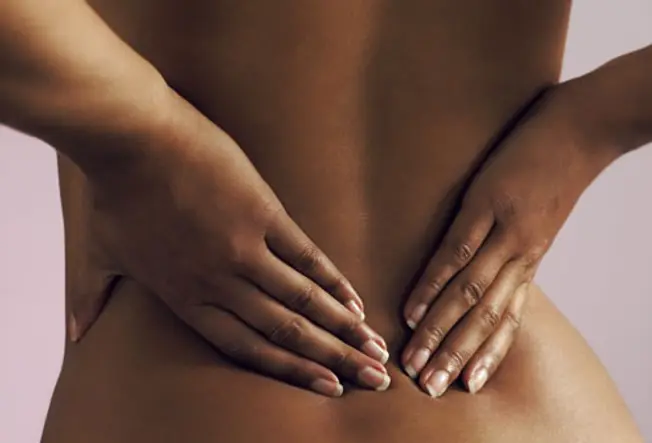
Back Pain
7/12
Got a backache that won’t quit? Studies show that depression may be a risk factor for chronic lower back pain. One study showed that up to 42% of people with chronic lower back pain experienced depression before their back pain started. Yet depression can often go ignored or undiagnosed because people don’t associate it with aches and pains. By the same token, having chronic pain puts you at risk for depression.

Risky Sexual Behavior
8/12
Depression is more commonly associated with lost libido than with an increased interest in sex. But some people use sex to cope with depression or stress. Increased promiscuity, infidelity, sexual obsession, and high-risk behavior such as unsafe sex can all be signs of depression. It can also reflect problems with impulse control or be a sign of mania in bipolar disorder. And they can have serious, negative effects on health and in your personal life.

Exaggerated Emotions
9/12
Often people who are depressed show little emotional expression. Other times, they show too much. They can be suddenly irritable or explosive. They may express exaggerated feelings of sadness, hopelessness, worry, or fear. Some are caught up in a sense of worthlessness or a feeling of excessive or inappropriate guilt. The key is a sudden change in behavior. If a person who is usually flat with their feelings becomes hyperemotional, depression may be the cause.

Problem Gambling
10/12
Gambling can make you feel excited and revved up. But if you gamble more than recreationally, you may be depressed or you may suffer from a gambling addiction disorder. Problem gamblers are much more likely than others to be depressed and abuse alcohol. Many say they were anxious and depressed before they started gambling. No matter how much of a quick rush gambling causes, it won’t provide the big payoff — relief from depression.

Smoking
11/12
Having trouble quitting smoking? Being depressed doubles your risk of smoking. Heavy smoking – more than a pack a day – and having a cigarette within 5 minutes of waking are common habits among smokers who are depressed, according to the CDC. While depressed smokers are less likely to quit, they can. Quitting programs that use techniques similar to those used to treat depression, such as cognitive-behavioral therapy or antidepressant medications, seem to help.

Not Taking Care of Yourself
12/12
What does fastening your seatbelt have to do with depression? Suddenly neglecting basic self-care can be a sign of depression and low self-esteem. The signs may be as small as not buckling up or brushing your teeth or as big as skipping physical exams or not tending to chronic conditions such as heart disease or diabetes. Get help for your depression and you’ll likely begin to take care of yourself again.
Show Sources
Share on Facebook Share on Twitter Share on Pinterest Email
© 2020 WebMD, LLC. All rights reserved. View privacy policy and trust info
Scroll Down for the Next Article


Sign up for our free Depression Newsletter
Get doctor-approved health tips, news, and more.
By clicking “Subscribe,” I agree to the WebMD Terms and Conditions and Privacy Policy. I also agree to receive emails from WebMD and I understand that I may opt out of WebMD subscriptions at any time.
Foods That Help Fight Depression
Medically Reviewed by Smitha Bhandari, MD on November 11, 2021
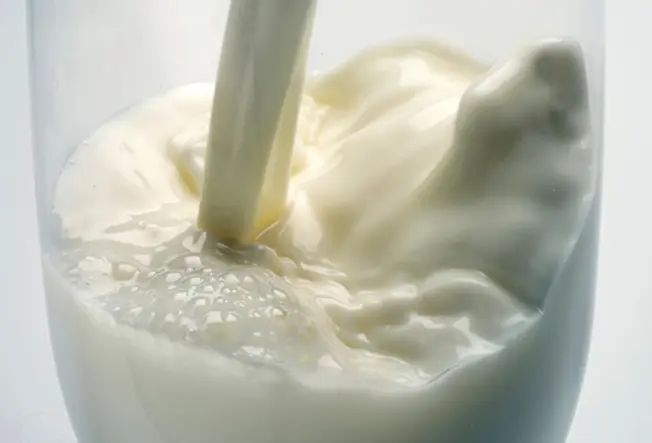
Milk
1/10
It’s a good source of vitamin D. If you have very low levels of this nutrient in your body, that can sometimes cause depression. One Norwegian study found that people who took a vitamin D supplement were less depressed a year later than those who didn’t. Don’t like milk? Boost the D in your diet with enriched cereals and juices, and canned fish.

Turkey
2/10
The traditional Thanksgiving bird has the protein building-block tryptophan, which your body uses to make serotonin. That’s a brain chemical that plays a key role in depression, researchers say. In fact, some antidepressant drugs work by targeting the way your brain uses serotonin. You can get the same mood-boosting effect from chicken and soybeans.

Brazil Nuts
3/10
This snack is rich in selenium, which helps protect your body from tiny, damaging particles called free radicals. One study found that young people who didn’t have enough of this nutrient in their diets were more likely to be depressed. The researchers couldn’t say that low selenium caused depression, though. Just one Brazil nut has almost half your daily requirement of the mineral so be careful to limit how many you eat. Other foods with this mineral include brown rice, lean beef, sunflower seeds, and seafood.

Carrots
4/10
They’re full of beta-carotene, which you can also get from pumpkin, spinach, sweet potatoes, and cantaloupe. Studies have linked this nutrient to lower levels of depression. There’s not enough evidence to say that it can prevent the disorder, but it can’t hurt to get more in your diet.

Clams and Mussels
5/10
These seafood favorites are a good source of B-12. Some studies say that people with low levels of the vitamin are more likely to have depression. It may be that a lack of it causes a shortage of a substance called s-adenosylmethionine (SAM), which your brain needs to process other chemicals that affect your mood. If you’re looking for other B-12 foods, try lean beef, milk, and eggs.

Coffee
6/10
A jolt of caffeine can be a pick-me-up that helps you feel more motivated. But if you have postpartum depression or panic disorder, some studies suggest that it might make your symptoms worse. Other researchers say a cup of joe can lower your risk of getting depression, though they’re not sure why.

Leafy Greens
7/10
They’re packed with folate, which your brain cells need to work well and which may help protect against depression. Food manufacturers in the U.S. add this vitamin, also known as B9, to enriched grains like pasta and rice. You can also get it from lentils, lima beans, and asparagus.

Salmon
8/10
This and other fish like herring and tuna are high in polyunsaturated fats. Researchers think those can help you fight depression. One type of these fats, called omega-3 fatty acids, may help brain cells use chemicals that can affect your mood. A few small studies show that people who weren’t depressed had higher levels of omega-3s than those with the mood disorder.

Caution: Alcohol
9/10
It might seem like just the thing to take the edge off your worries or make you feel more social. But most of the time, it’s best if you drink wine, beer, and mixed drinks only in moderation. You might feel better in the moment, but heavy drinking can make depression symptoms worse over time, because alcohol makes your brain less active. It also can make antidepressant medications less effective.

Caution: Junk Food
10/10
It may be fast and filling, but these processed foods can be bad news for your mood. Scientists have studied how diets high in sugar, simple carbohydrates, and fatty foods affect how you feel. Many found some link between these unhealthy eats and depression. Your best bet: a well-balanced diet with plenty of fruits, vegetables, whole grains, and lean protein.
Show Sources
Share on Facebook Share on Twitter Share on Pinterest Email
© 2021 WebMD, LLC. All rights reserved. View privacy policy and trust info
Scroll Down for the Next Article
From WebMD


Sign up for our free Depression Newsletter
Get doctor-approved health tips, news, and more.
By clicking “Subscribe,” I agree to the WebMD Terms and Conditions and Privacy Policy. I also agree to receive emails from WebMD and I understand that I may opt out of WebMD subscriptions at any time.
Visual Guide to Seasonal Affective Disorder (SAD)
Medically Reviewed by Smitha Bhandari, MD on December 28, 2020

What Is SAD?
1/12
It’s a type of depression that returns at the same time every year, usually in late fall or early winter, when there is less sunlight as the days get shorter. Some people get it in spring or early summer, but that’s not as common.

What Are the Symptoms?
2/12
You could feel tired, sluggish, and in low spirits for much of the day. It can sometimes last for weeks at a time. You might find it hard to sleep, concentrate, or enjoy your favorite activities. It’s possible you’ll overeat and gain weight as well.

What Causes SAD?
3/12
Doctors think less sunlight at certain times of year can trigger your body to change the way it makes and uses certain key brain chemicals. It may be that fewer daylight hours raises levels of melatonin and lowers levels of serotonin, two substances that help keep your sleep regular and your mood even.

Who Gets SAD?
4/12
The farther you are from the equator, the more likely you are to have SAD. For example, you’re about seven times more likely to get it if you live in New Hampshire than in Florida. Anyone can have the condition, but people with a family or personal history of depression get it more and their symptoms are often worse. And women get it four times more than men.
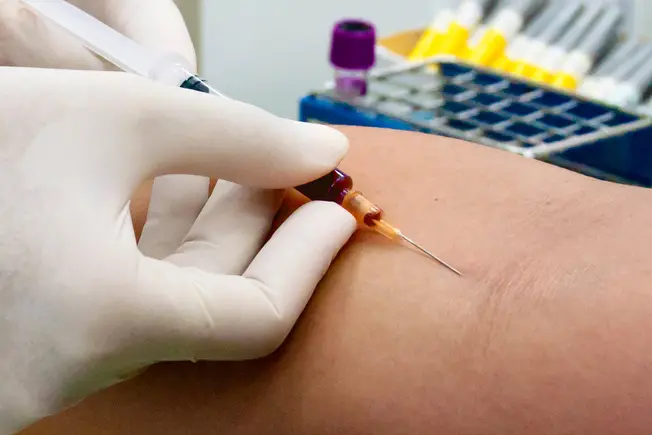
How Do You Know if You Have It?
5/12
Tell your doctor about your symptoms. They’ll ask about your family history and check to see if you have other conditions that could cause similar problems. For example, low energy could be a sign of a virus, thyroid problems, or low blood sugar. Lack of sleep, weight gain, and feeling moody might be symptoms of hormone issues and other things not related to seasonal changes.
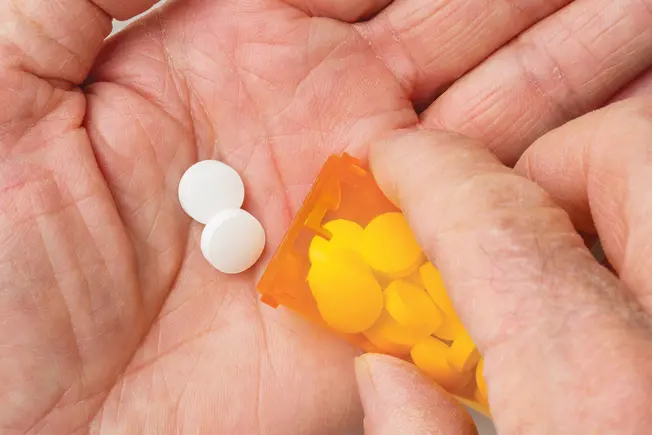
Treatment: Medication
6/12
Your doctor might suggest an antidepressant drug called a selective serotonin reuptake inhibitor (SSRI.) These pills help keep more serotonin in your brain, which can help mood and sleep. Ask about the risks and side effects, which might include dry mouth, nausea, sleep problems, dizziness, headache, and sexual problems. You may need to try different SSRIs or other antidepressants to find one that works best for you.

Treatment: Light Therapy
7/12
You can use special lamps to help replace the sun that you miss during the winter months. These light boxes provide about 20 times more light than regular indoor lighting and screen out the UV rays that can damage your skin. Just 20 to 60 minutes each morning in front of one of these lamps during the winter could help ease your symptoms.

Treatment: Talk Therapy
8/12
A therapist can help you identify patterns of negative thinking that make you feel down. One approach, cognitive behavioral therapy, tries to replace those thoughts with happier ones as well as with activities that engage you and give you pleasure. This might help distract you from the gloom of the winter months.
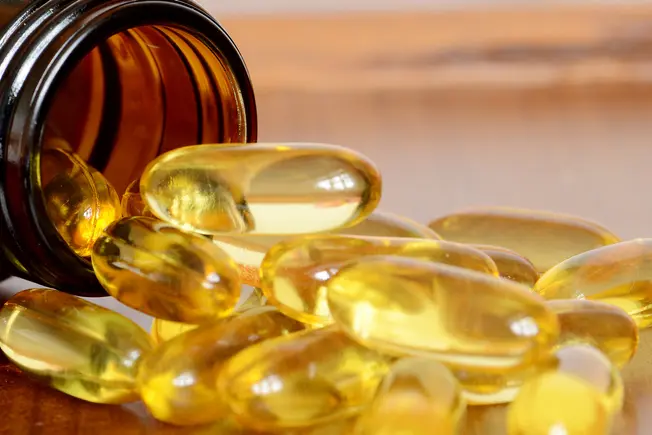
Treatment: Vitamin D
9/12
Research shows mixed results on whether taking this vitamin can help with SAD. People typically have less vitamin D in their blood in the winter, but doctors don’t yet know if that’s a cause of SAD. There have been some studies that show vitamin D supplements help people feel better, but others seem to show there is no effect at all.

Keep SAD Blues at Bay
10/12
There are things you can do on your own to manage your symptoms. Connect and spend time with loved ones who understand your condition. Exercise! It can really lift your mood. Do it outside in the sunshine for even more benefit. Eat a balanced diet of veggies, whole grains, and fruits, and avoid sugar and “simple carbs” like white bread. Keep your sleep on a regular schedule to keep your mood even and to maximize your time in daylight.
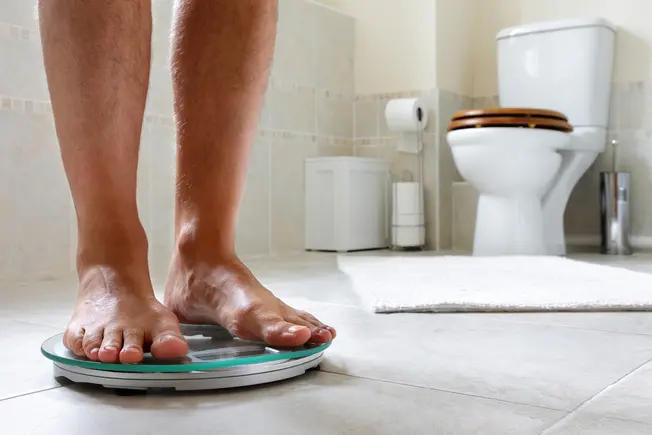
SAD in the Spring or Summer
11/12
If you get seasonal affective disorder in the sunnier seasons, the symptoms are different from the winter version. You may get agitated and anxious as well as depressed. Instead of craving certain foods, you may lose your appetite. This could lead to weight loss, rather than adding a few pounds like you sometimes do with winter SAD.

When to See a Doctor
12/12
Most people feel down once in a while. But if you get the blues for days or weeks, for no clear reason, it may be time for an appointment. Your doctor can help you and your loved ones understand your condition so that you can start to treat and manage it. Be sure to tell your doctor right away if your depression leads you to thoughts of self-harm.
Show Sources
Share on Facebook Share on Twitter Share on Pinterest Email
© 2020 WebMD, LLC. All rights reserved. View privacy policy and trust info
Scroll Down for the Next Article


Sign up for our free Depression Newsletter
Get doctor-approved health tips, news, and more.
By clicking “Subscribe,” I agree to the WebMD Terms and Conditions and Privacy Policy. I also agree to receive emails from WebMD and I understand that I may opt out of WebMD subscriptions at any time.
Where to Get Mental Health Help
Medically Reviewed by Smitha Bhandari, MD on March 15, 2021

In-Person Therapy
1/13
This is the most common type. You usually meet with a mental health professional at their office once a week for an hour or less. They’ll use research-based techniques to help you work through your problems and manage challenges.

Federally Funded Health Centers
2/13
These are a good option if you don’t have health insurance or much money to spend on therapy. The amount you pay is based on your income. You can search online to find a health center near you.

Colleges and Universities
3/13
Some colleges and universities offer low-cost therapy sessions with graduate students who need counseling experience. A licensed professional will supervise the session. Call the school’s psychology, psychiatry, or behavioral health department to ask if therapy is available to the public.

Online Therapy
4/13
It’s like traditional in-person counseling, just through video. It’s a convenient way to talk to a mental health professional from wherever you’re located. This can be helpful if you have a busy schedule or live in a rural area. And it may cost less if you don’t have insurance. Make sure the therapist is licensed. Many states have online directories.

Crisis Line
5/13
The federal government, nonprofits, and other groups offer free, private support to people facing mental health crises. Trained counselors and specialists are usually available 24 hours a day, 7 days a week to talk with you about your safety and how you’re feeling. They can also connect you with resources and treatment in your area.

Veterans Crisis Line
6/13
There’s also a crisis line designed for military veterans, their family members, and friends. You can connect with trained responders with the Department of Veterans Affairs by phone, text, or online chat. The service is free and many of the responders are also veterans.
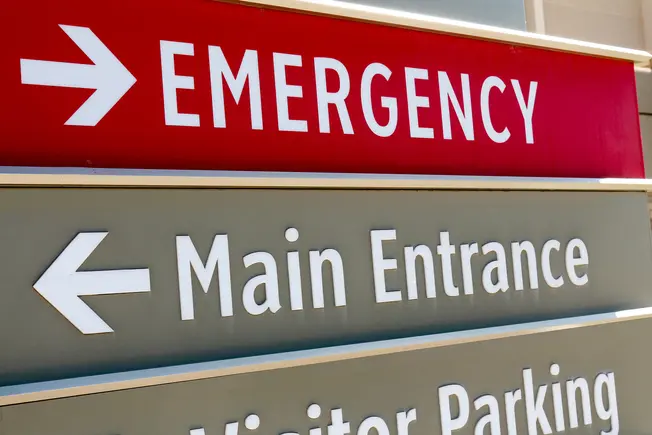
Hospitals
7/13
If you’re having a severe mental health crisis, you may need to go to the hospital. This is usually the first choice if you’re in danger of harming yourself or others. In-patient and day treatment programs can help you manage symptoms and get things back on track.

Support Groups
8/13
Group settings can help you feel like you’re not alone when dealing with mental health challenges. Five to 15 people focus on one issue like depression or anxiety for 1-2 hours a week. A therapist leads the group. Some people do group therapy along with one-on-one sessions.

Medicaid and Medicare
9/13
The Medicaid program offers health coverage to qualified low-income adults, kids, and people with disabilities. Funded by U.S. federal and state governments, it includes low-cost or free mental health treatment.

Clinical Trials
10/13
Researchers use these to test new treatments to see if they’re safe and work well. It’s also a way for you to access new prescription drugs before they’re available to the public. This includes mental health medications. The clinical trial’s sponsor covers research costs, but you or your insurance company may need to pay for other things like hospital stays, lab tests, and doctor visits.
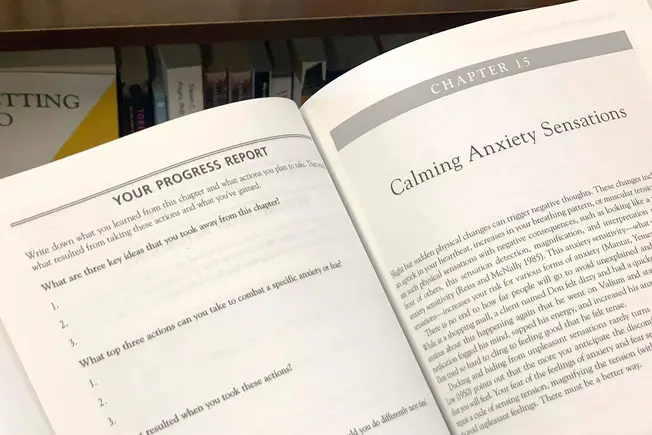
Video and Workbooks
11/13
These treatment options can be done alone or led by a therapist. Search online or ask your therapist for suggestions.

Mobile Apps
12/13
You can use them alone or with other treatments to manage stress, track your mood, and other things. These apps are mostly low-cost or free, which is a plus. But you’ll want to make sure they’re trustworthy. Do a bit of research to see how the app uses sensitive data.

Employee Assistance Program (EAP)
13/13
You may be able to talk to a therapist for free if your job has an employee assistance program (EAP). Ask your human resources representative if it’s available and how to get started.